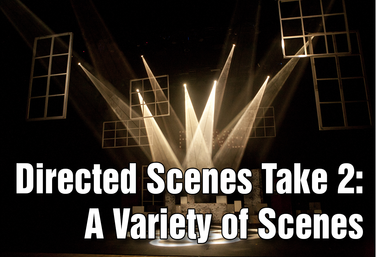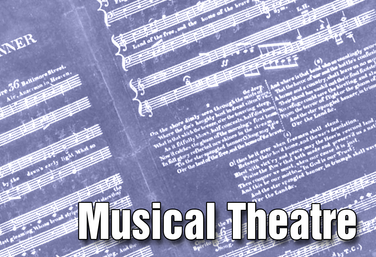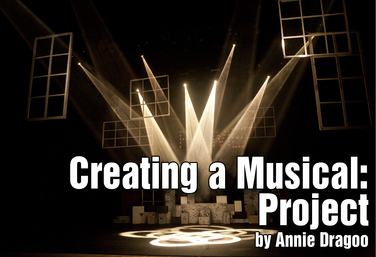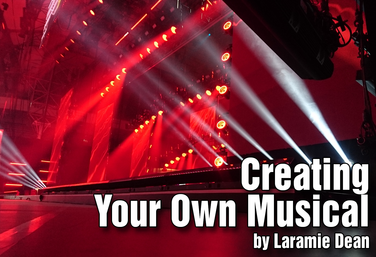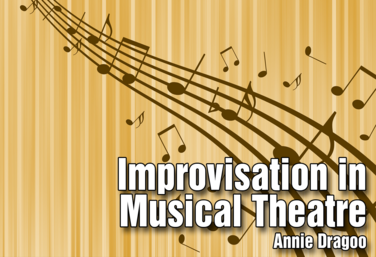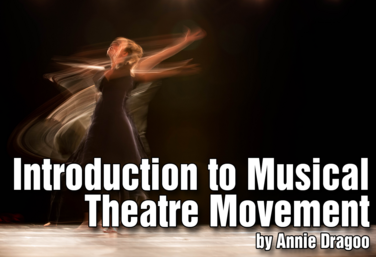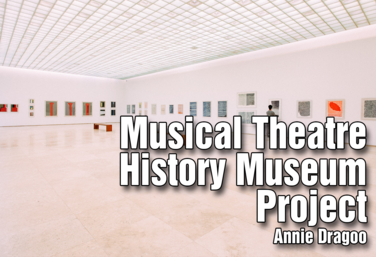Virginia Standards Of Learning (2020)
Theatre Arts I: Introduction to Theatre
View all Standards for Virginia Standards Of Learning (2020)
TI.11 The student will analyze how music, visual art, and dance arts enhance performances.
Part of the Middle School Curriculum
Unit Seven: Directed Scenes Take 2: A Variety of Scenes
by Lindsay Johnson
Students will have another opportunity to participate in student-directed scenes, only this time each director will be assigned a different script, and actors for each group will be chosen by the teacher based on individual strengths and challenges, rather than holding auditions.
Actors will take a deeper dive into character physicality and use of levels in staging this unit. Directors will continue to create a set design and block the scenes, adding props as well in this unit.
The unit culminates in actors presenting their directed scenes to the class.
Read More...
Read Less...
Musical Theatre
by Anna Porter
Musical Theatre has two components that separate it from straight plays: song and dance. This unit gives students the opportunity to try out both. In musical theatre, music signifies heightened emotion. We can’t express ourselves with just words, we need music (and through extension, song and dance) to take it further.
This unit includes three lesson plans:
1. Acting the Song - “Musical Tactics”
2. Acting the Song - “Textual Analysis”
3. Introduction to Dance
A solo performance assignment is also included, and the unit includes assessment tools - rubrics, reflections, and self-evaluations.
Read More...
Read Less...
Creating a Musical: Project
by Annie Dragoo
Want a fun project that has your students collaborating and creating? In this unit by Annie Dragoo, students in groups will write and perform an original musical by adding modern songs to a traditional fairy tale story.
The six lessons take students from writing their script, to choreography and planned movement, to rehearsing, performing and evaluation.
The Rubric will focus on student performance. That means vocal delivery, emotional delivery, blocking/choreography, energy, focus, and characters.
Read More...
Read Less...
Creating Your Own Musical
by Laramie Dean
Instructor Laramie Dean uses this unit as the final project for his Drama 2 students. Drawing upon any of the skills students have developed throughout they create a product that could be used within a new piece of musical theatre.
Students start by analyzing three musicals, study guides included, and practice creating musical elements. They are then giving class time to prepare in groups as many elements as their can for a new musical using devised theatre techniques.
There are 24 lessons in this unit which culminates in a final assessed performance.
Read More...
Read Less...
Improvisation in Musical Theatre
by Annie Dragoo
Understanding basic improvisation skills will help musical theatre performers understand that musical theatre is more than just singing and dancing. It’s about using all the tools (voice, body, and mind) an actor has at their disposal to create a character.
This unit focuses more on the improv aspect rather than the musical theatre aspects - in fact students need no prior musical theatre knowledge. Annie Dragoo, creator of the unit, uses this material as her first unit in her musical theatre class. It’s a great introduction and will get your students in the right frame of mind to approach musical theatre.
The lessons explore a variety of improv skills such as vocal responses, movement, character study, sensory awareness and culminate in an improv scene and unit essay.
Read More...
Read Less...
Introduction to Musical Theatre: Movement
by Annie Dragoo
Musical theatre performers use their bodies to sing, to dance, and to act. We must think of our bodies as instruments and learn to use our instruments properly in order to be better musical theatre performers.
The overall objective with this unit, by Annie Dragoo, is for students to demonstrate an understanding of the use of good movement as it connects to musical theatre. Some of the activities include using action verbs, moving as animals and inanimate characters, nonverbal communication and situational movement. Students will then perform a scene that will allow them to put to practice all the movement techniques they have learned.
Read More...
Read Less...
Musical Theatre History Museum Project
by Annie Dragoo
Musical Theatre is a uniquely American art form, explored through this unique unit by instructor Annie Dragoo.
It is divided into two parts: first, students view a documentary called Broadway the American Musical - available on YouTube. Students will reflect after each episode and there is an available viewing quiz.
After viewing, discussing and reflecting on each episode of the PBS Documentary, Broadway: The American Musical, students will research a specific topic in order to create and design a musical theatre museum exhibit. It’s a great three-dimensional demonstration of knowledge, and there is a rubric provided for the completed exhibit.
This is not your traditional textbook history learning!
Read More...
Read Less...
View all Standards for Virginia Standards Of Learning (2020) Standards Master List
© Copyright 2015-2025 Theatrefolk
